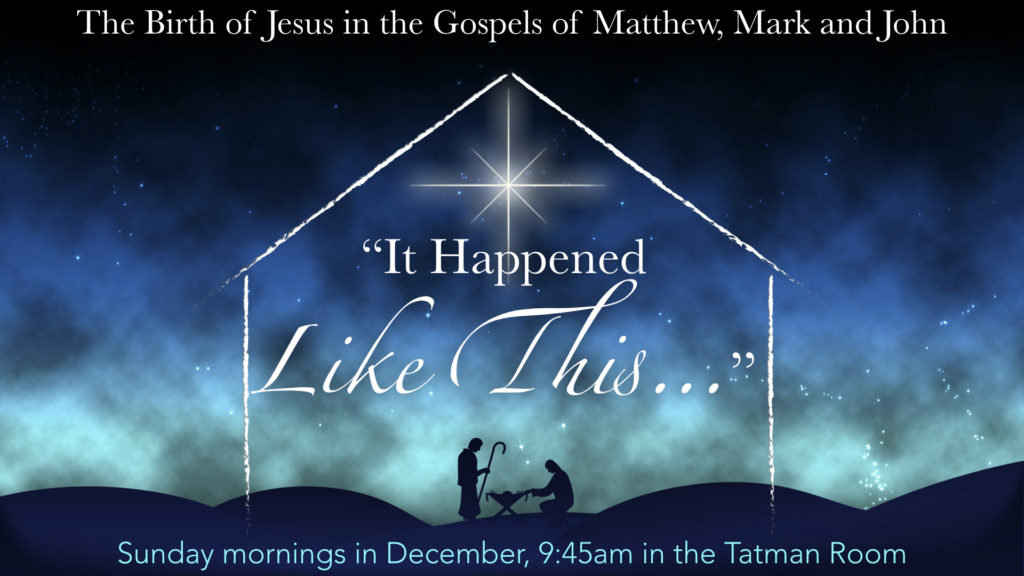
“It Happened Like This…” – An Advent Sunday School Class

Read more...

Pastor’s Corner – February 2019

If you give a man a fish he is hungry again in an hour. If you teach him to catch a fish you do him a good turn. — English proverbBut Jesus answered, “It is written, “‘Man shall not live by bread alone, but by every word that comes from the mouth of God.’” — Matthew 4:4“All Scripture is God-breathed and is useful for teaching, rebuking, correcting and training in righteousness, so that the servant of God may be thoroughly equipped for every good work.” — 2 Timothy 3:16–17
Learning to Study the Scriptures
Getting SOAPy
Scripture
Observation
Application
Prayer
Read more...

New Sunday School Opportunity – Beginning Sunday, January 27

- The closer I walk with Jesus, the closer I come to that “more and better life.”
- The more time I spend in God’s Word, the more grounded I am.
- The more I connect with other believers, the more hope I have.
- Teaching the full gospel of Jesus Christ (more than just “sin management” or whatnot),
- Parents being the primary ministers to their own children (don’t let this scare you), and
- Building as many intergenerational connections into kids lives as possible.
Read more...

Pastor’s Corner – October 2017

“As Jesus was sitting on the Mount of Olives, the disciples came to him privately. “Tell us,” they said, “when will this happen, and what will be the sign of your coming and of the end of the age?”Jesus answered: “Watch out that no one deceives you. For many will come in my name, claiming, ‘I am the Christ,’ and will deceive many. You will hear of wars and rumors of wars, but see to it that you are not alarmed. Such things must happen, but the end is still to come. Nation will rise against nation, and kingdom against kingdom. There will be famines and earthquakes in various places. All these are the beginning of birth pains.” (Matt 24:3–8)
And we urge you, brothers & sisters, warn those who are idle, encourage the timid, help the weak, be patient with everyone. Make sure that nobody pays back wrong for wrong, but always try to be kind to each other and to everyone else.
Be joyful always; pray continually; give thanks in all circumstances, for this is God’s will for you in Christ Jesus.
Do not put out the Spirit’s fire; do not treat prophecies with contempt. Test everything. Hold on to the good. Avoid every kind of evil. (1 Thessalonians 5:14-22)
Note particularly verses 23 & 24:
May God himself, the God of peace, sanctify you through and through. May your whole spirit, soul and body be kept blameless at the coming of our Lord Jesus Christ. The one who calls you is faithful and he will do it.
In other words, be about the work of the Kingdom, and trust in the God who’s name is Faithful. He is true to his promises, and He is true to you. Amen!
Read more...
